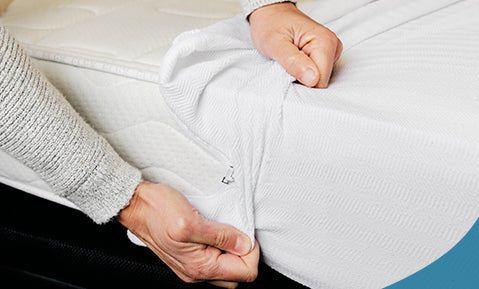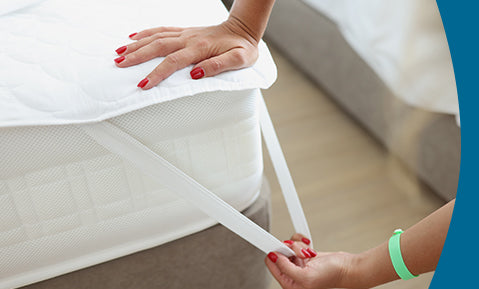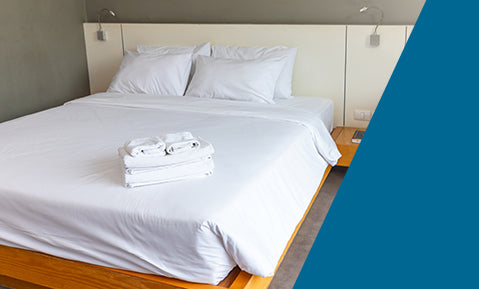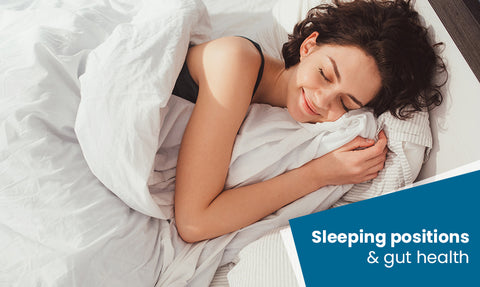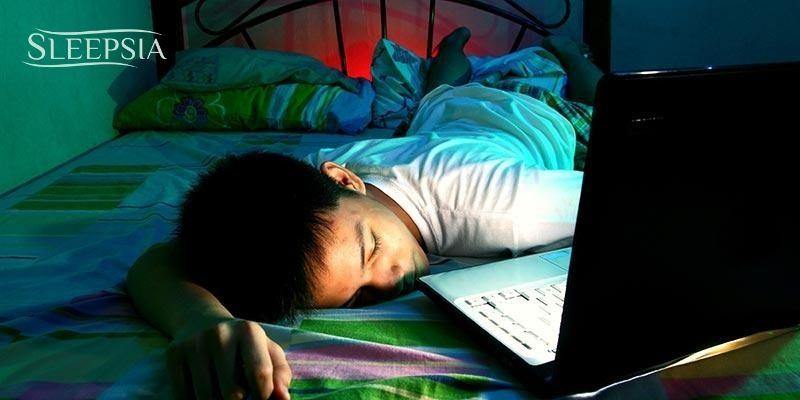
Chronic sleep deprivation has become a natural way of life for teenagers today. While research suggests that teenagers require 8-10 hours of sleep per day, they only get around 6.5-7.5 hours worth, leading to sleep deprivation that impacts their mood, social skills, and cognitive and athletic abilities.
“Teenagers are going through a second developmental stage of cognitive maturation,” explains Micheal Crocetti, M.D., M.P.H. So they require additional sleep to support brain development and physical growth.
In this article, you’ll learn more about teens and sleep.
Summary:
- Teenagers require 8-10 hours of sleep per night.
- Most teenagers only get 6.5-7.5 hours of sleep per night.
- Sleep deprivation can negatively impact various aspects of a teenagers life: cognitive and athletic abilities, social skills, etc.
- Devices such as smartphones and laptops alter sleep patterns and inhibit good sleep.
- Stimulants such as coffee, tea, and energy drinks should be avoided before sleep.
Causes of Sleep Deprivation in Teens
 Teenagers have quite a hectic life and need to balance studies with extracurricular activities. Further, they spend a lot of time texting, sometimes all through the night.
Teenagers have quite a hectic life and need to balance studies with extracurricular activities. Further, they spend a lot of time texting, sometimes all through the night.
All this has resulted in an epidemic of chronic sleep deprivation.
Various factors can impact the cycle and quality of sleep in teenagers. Some of these factors are provided below:
Hormonal Change
During puberty, teenagers experience a lot of shift in levels of hormones in the body, shifts that can push the circadian clock one to two hours ahead.
Laura Sterni, M.D. and sleep expert at John Hopkins says, “Teens experience a natural shift in circadian rhythm.” So it’s difficult for them to maintain a good sleep schedule.
Device Use
Devices emit blue light, which hinders the release of melatonin, the sleep hormone. According to a study, teens were able to gain an extra 21 minutes of sleep per night by simply putting their phone away an hour before bed.
Blue light increases your arousal and feelings of alertness, both of which impede the production of melatonin.
Melatonin relaxes your body so that you can fall asleep, whereas blue light increases alertness and keeps you awake.
Routine
Because of a hectic school routine and a lack of sleep hygiene, teens may find it difficult to fall asleep. It is important to maintain a good sleep schedule to promote good quality sleep.
Sleep Disorders
Sleep disorders such as sleep apnea, insomnia, and restless legs syndrome impact sleep quality in both teens and adults.
Mental Health
Because of hormonal change, hectic routine, pressure of performance at school, and social interactions, teens may suffer from mental health problems, such as depression and anxiety, which hamper sleep.
Effects of Sleep Deprivation in Teens

Sleep deprivation can have serious impact on various aspect of a teens life:
- Cognitive abilities: sleep deprivation decreases cognitive abilities, making it difficult to focus, learn, and solve problems. Impaired cognitive abilities can lead to:
- Athletic abilities: the body repairs itself when we’re asleep. When muscles repair, they become stronger. So lack of sleep hampers development of muscle and strength.
- Heightened emotions: lack of sleep creates difficulty in processing emotions because of which emotional responses may be off the charts, leading to moodiness and aggressiveness. It also harms emotional development.
- Mental health disorders: depression, anxiety, and bipolar disorders are often linked to poor sleep.
- Poor social skills: socializing requires one to have normal emotional responses, but lack of sleep heightens emotions, leading to poor social behavior.
- Tiredness: a general sense of tiredness can decrease enthusiasm in activities that you enjoy.
Preventing Sleep Deprivation in Teens

Good sleep hygiene can help teens to avoid sleep deprivation. Here are a few tips to improve sleep hygiene in teenagers:
Learn a Relaxation Technique
While there are many relaxation techniques, you should focus on mastering one or two. These techniques calm your mind and reduce the levels of anxiety.
Here are a few relaxation techniques that you can try:
- Mindfulness: it’s a state of mind that you need to learn to tap into. Simply focus on your breath, and when thoughts arise, learn not to judge them and bring your focus back to your breath.
- 4-7-8 breathing technique: inhale for 4 seconds, then hold the breath for 7 seconds, and finally exhale for 8 seconds. Repeat for a few minutes.
- Progressive muscle relaxation: tighten a group of muscle, such as fist, thighs, ankle, etc., for 10-15 seconds, then relax and move to another group of muscle. Repeat for a few minutes.
Journal
Ruminating on the past and planning for the future create a lot of anxiety, keeping you alert and awake. To deal with intrusive thoughts, you can journal about them.
One key technique here is to simply analyze the thought. Most often we catastrophize an event, and looking at it logically can help us resolve the issue.
Journal your thoughts so that you can stay on top of them.
Sleep Hygiene for Teens
Sleep hygiene can help teens to fall asleep faster. It can also improve the quality of sleep. Here are some sleep hygiene tips for teenagers:
- Dim the lights: a dark environment promotes relaxation and sleep.
- Reduce noise: a quiet environment not only facilitates but also enhances sleep. To reduce noise, you can rely on earbuds, earphones, and white noise machines.
- Wear comfortable clothes: clothes made of breathable fabric reduce night sweats and increase comfort.
- Put away devices: stop using devices, such as smartphones and laptops, an hour before going to bed.
- Maintain a schedule: a schedule helps teens to fall asleep at the same time everyday.
Read more about sleep hygiene.
Getting the Right Pillow and Mattress
As teenagers age, their size changes. So a teens pillow becomes incompatible after some time. Yet most teenagers continue using the same pillow for a very long time.
A teens pillow should provide comfort and also adjustability. An adjustable pillow enables you to alter its loft and firmness. So it’s perfect for teenagers.
As the teen grows, he or she can simply increase the loft of the pillow to meet his or her personal preferences. And instead of purchasing a different pillow each time, the teenager can simply rely on one for a very long time.
Night Routine for Teens
Like a morning routine that helps you activate your mind and get ready for the day, a night routine can help you prepare for sleep by promoting relaxation.
Here’s an ideal night routine that teens can tweak according to their personal preferences:
- Stretch: doing some light stretches can relax the muscles in your body.
- Take a bath: a warm bath relaxes your mind and makes you feel at ease.
- Journal: write about thoughts that keep impinging upon your mind.
- Practice a relaxation technique: use one of the aforementioned relaxation techniques to calm your mind.
- Read: do some light reading until you fall asleep.
To stop intrusive thoughts, experts recommend keeping your mind occupied by doing something that requires mental energy. Reading is a great way to relax and remove your focus on anxiety provoking thoughts.
Dealing with Sleep Disorders in Teens
A doctor can help deal with sleep disorders in teenagers. Sleep disorders make it difficult to fall or stay asleep. Most common sleep disorders include:
- Insomnia: melatonin, sleeping pills, and CBT-I (cognitive behavioral therapy for insomnia) are quite effective.
- Sleep apnea: using a wedge pillow or a CPAP machine can provide relief.
- Restless legs syndrome: specific medications are available to relieve symptoms.
Dealing with Mental Health Disorders in Teens
Teenagers face a lot of pressure to perform in both studies and extracurricular activities. And this pressure along with competition can lead to mental health disorders.
If someone is dealing with mental health disorders, such as depression and anxiety, then it is better to seek professional help.
Here’s how a registered psychologist can help:
- Depression: cognitive behavioral therapy has proven effective in stopping ruminating thoughts.
- Anxiety: dialectic behavioral therapy and various grounding techniques can help calm the mind.
And a trained psychologist can also help with various personality disorders.
Conclusion
Chronic sleep deprivation has become a real epidemic around the globe. Insufficient sleep can hamper development both physically and cognitively. Further, it has a negative impact on the mental health of teenagers.
To enjoy a more fulfilling life and have more energy and enthusiasm during the day, teens should get 8-10 hours of sleep per day.
Frequently Asked Questions
Q. Is it Normal for Teenagers to Sleep Late?
Ans. Yes, it is. Because of hormonal changes, teenagers often sleep late, as their circadian rhythm is pushed a few weeks ahead.
Q. Is it bad for a teenager to sleep for 12 hours?
Ans. It depends on the amount of sleep a teenager is getting per day. If the teen doesn’t get enough sleep during the weekdays, then it is normal to sleep more.
Q. Why do teens sleep late?
Ans. Teens often sleep late because hormonal changes in them push their circadian rhythm forward by one to two hours. Further, they usually socialize with their friends via phones during the night.

